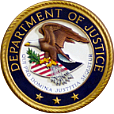Finally, my question for you:
If this pattern of witness payoffs and/or threats, depending on loyal [false] testimony, is repeated enough, when does it become evidence of criminal witness tampering or coercion? If not direct criminal evidence, is it enough to alert prosecutors or judges of possible witness tampering?
I'm not sure if there's a simple answer to that. Also, take the following with a grain of salt because this is not something I run into in my day to day practice.
Getting evidence that witness tampering has occurred is probably the major hurdle in most cases.
In terms of what actions constitute witness tampering, it comes down to the criminal laws in the jurisdiction in question. Here's a link to the DOJ web page discussing federal law:
>>>Section 1512 of Title 18 constitutes a
broad prohibition against tampering with a witness, victim or informant. It proscribes conduct intended to illegitimately affect the presentation of evidence in Federal proceedings or the communication of information to Federal law enforcement officers. It applies to proceedings before Congress, executive departments, and administrative agencies, and to civil and criminal judicial proceedings, including grand jury proceedings.
See 18 U.S.C. § 1515(a)(1). In addition, the section provides extraterritorial Federal jurisdiction over the offenses created therein.
See 18 U.S.C. § 1512(g); 128 Cong. Rec. H8469 (daily ed. Oct. 1, 1980); H. R. Rep. No. 1369, 96th Cong., 2d Sess. 20-22 (1980).<<<(emphasis added)
This is archived content from the U.S. Department of Justice website. The information here may be outdated and links may no longer function. Please contact webmaster@usdoj.gov if you have any questions about the archive site.

www.justice.gov
Here's a link to the law.

www.law.cornell.edu
The federal law has numerous sections. The following section appears to be a decent candidate for the situation you described:
>>>(b) Whoever knowingly uses
intimidation, threatens, or
corruptly persuades another person, or attempts to do so, or engages in misleading conduct toward another person, with intent to—
(1)
influence, delay, or prevent the
testimony of any person in an official proceeding;
(2)
cause or induceany person to—
(A)
withhold testimony, or withhold a record, document, or other object, from an official proceeding;
(B) alter, destroy, mutilate, or conceal an object with intent to impair the object’s integrity or availability for use in an official proceeding;
(C) evade legal process summoning that person to appear as a witness, or to produce a record, document, or other object, in an official proceeding; or
(D) be absent from an official proceeding to which such person has been summoned by legal process<<<(emphasis added)
If a third party (We'll call him "Fat Baloney" or "FB") pays a lawyer to represent a potential witness who might testify against FB, the lawyer can probably wield a great deal of influence without crossing the line. For example, a lawyer could say to the client "If you take the 5th, it would be difficult for the prosecutor to prove that you had knowledge of the crime." This might be technically true, but the lawyer might not say "However, if you take a plea deal there's no risk of a conviction and you can probably walk away with just a modest fine." This hypothetical is just food for thought to illustrate potential issues. In general, most lawyers would be quite careful to avoid crossing the line.
As a practical matter, getting evidence of witness tampering might be difficult because the communications would probably be covered by attorney-client privilege unless the client waives it or the prosecutor is able to demonstrate that the crime-fraud exception applies.
The attorney-client privilege does not cover statements made by a client to a lawyer that are meant to further or conceal a crime or often fraud.

www.justia.com
If the person who did the tampering is not a lawyer, the AC privilege issues would of course not apply so it might be easier to gather evidence.
In general, it is difficult to know if a particular witness has been influenced in a manner that would cross the line with regards to witness tampering, especially if the influence has come from a lawyer.
In theory it might be possible to get a wiretap:
>>>Like Mr. Trump, most of Mr. Cohn’s best-known clients do not appear in the just-released documents. Mr. Salerno, known as Fat Tony, is an exception. . . .
Mr. Webster [the F.B.I. director] denies in a letter to Mr. Cohn that the F.B.I. fed information to reporters, but a separate memo by a different official acknowledged that agents had conducted surveillance of Mr. Cohn’s office “to ascertain the feasibility of installing a monitoring device to intercept the conversations of Genovese boss Anthony Salerno” and a Teamsters contact.<<< (any similarities between Fat Tony and Fat Baloney are purely intentional)
The president isn’t mentioned in just-released documents. Still, the thick file is a timely reminder of the unusual realm his feared mentor inhabited.

www.nytimes.com
Going back to Fat Baloney and the lawyer he's paying, the prosecutor would need to show that FB conspired or caused the other person (e.g the lawyer) to tamper with a witness, and FB's communications with the lawyer are also probably protected by AC privilege unless the prosecutor can meet the bar to show a crime fraud exception.
Yet another aspect of this is attorney ethics. You didn't ask, but the third party payer scenario can raise numerous ethical issues for the attorney. This is not a criminal law issue, but attorneys need to be very careful in this situation to avoid getting in hot water with the state bar where they are licensed.
I'm not sure what the Georgia and NY laws are with regards to witness tampering. There could be some crossover in the sense that pressuring a person who is a witness in both cases could lead to a violation of both state and federal law.
Again, take the above with a grain of salt. I'm sure it is far from complete or perfect.